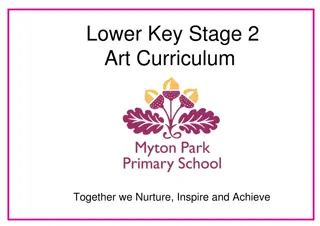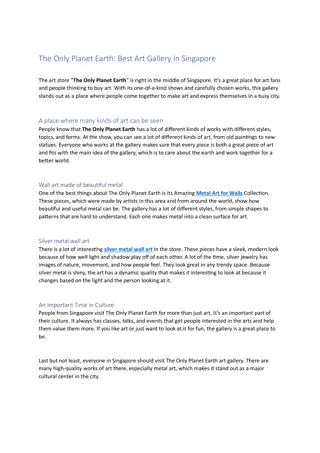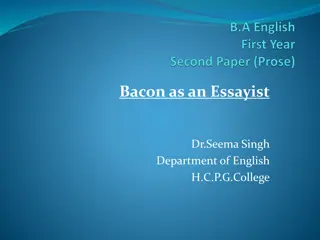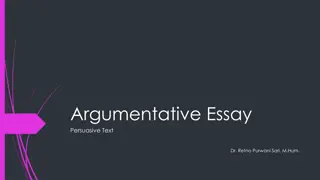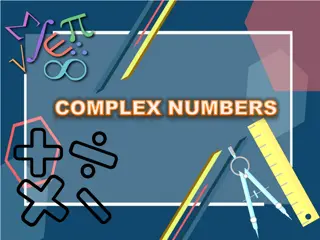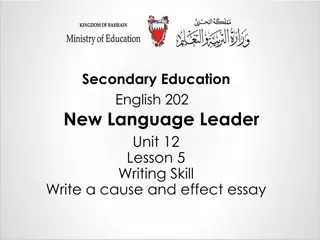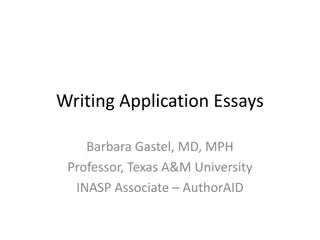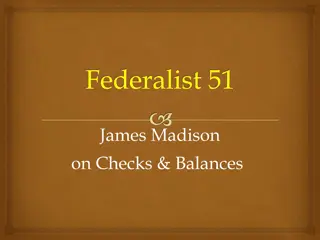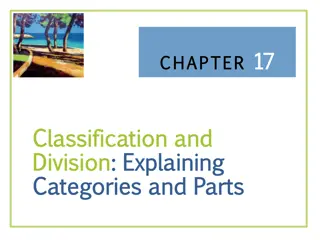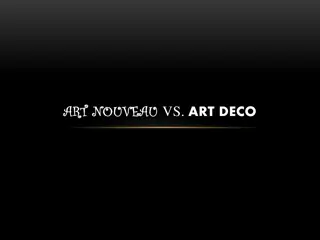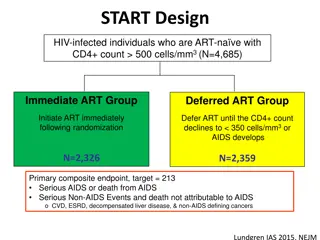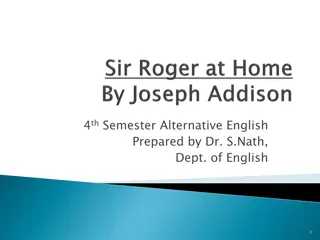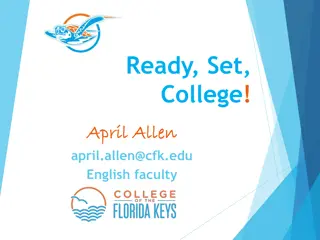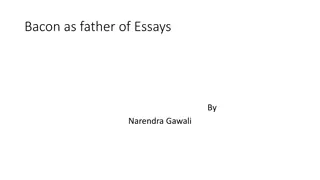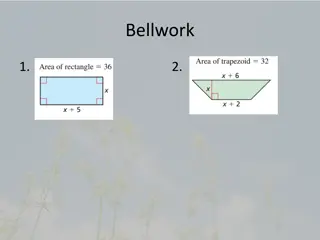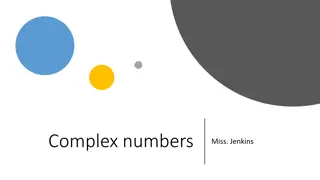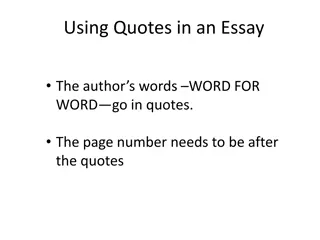Mastering the Art of Definition Essays: Unraveling Complex Concepts
Delve into the intricacies of definition essays and learn how to interpret complex concepts through historical context, denotation, and connotation. Explore why definitions matter, how they evolve over time and across cultures, and how to craft compelling introductions and conclusions. Discover the importance of meaningful transitions in body paragraphs and the significance of focusing on different elements of a definition. Get inspired to explore abstract concepts, places, or adjectives in your writing.
Download Presentation

Please find below an Image/Link to download the presentation.
The content on the website is provided AS IS for your information and personal use only. It may not be sold, licensed, or shared on other websites without obtaining consent from the author. Download presentation by click this link. If you encounter any issues during the download, it is possible that the publisher has removed the file from their server.
E N D
Presentation Transcript
Definitions are more complex than you think.. Ismo explains why ass is the most complicated word in the English language https://www.youtube.com/w atch?v=RAGcDi0DRtU
What is the definition essay? Provides details about a concept Interprets a word or concept in new ways Utilizes historical context, denotation, and connotation Focuses on complex ideas Simple concepts won t provide enough details Try abstract concepts, places, or adjectives
Who is your audience? Imagine a specific group of people What background do they need? Why should they be interested? How has the concept previously been defined? Are there any confusing components of the concept? Does the definition change over time or across cultures? Outlining Parts | The Introduction
INTRODUCTION CONCLUSION The introduction must include a thesis statement Go beyond the definition of a word, and suggest how complex the word can be What does having many definitions suggest about a word? Why does it matter? Go beyond the obvious here, don t just say it means it s diverse/unique
What does it sound like? X The word mother has many different connotations, which implies that a mother s job is more than just the caregiver we expect it to be. With so many roles, we should respect the work that they do in and outside the home because it is diverse and requires many skills. The word mother has many connotations, which just goes to show that mothers can be anything to anyone. which shows us how diverse the definition of mother is.
Each body paragraph should focus on a different element of the definition History (etymology and context) Denotation (expectations) Connotation (social and cultural) Transitions should be meaningful, and explain how each point connects to the previous. Avoid first, next, finally, moreover See your transitions handout
Body Paragraphs | 1. History Discuss the origins of a word/concept Etymology for roots and origins Prefixes and suffixed Different forms of the word In addition to climber also look up climb. This paragraph is strictly factual Work to understand WHY this background is important or interesting. It can guide your future research.
Origins of Climber (n.) early 15c., "one who climbs," agent noun from climb (v.). Botanical meaning "a plant that rises by attaching itself to some support" is from 1630s. Climb (n.) 1580s, "act of climbing," from climb(v.). Meaning "an ascent by climbing" is from 1915, originally in aviation. Climb (v.) Old English climban "raise oneself using hands and feet; rise gradually, ascend; make an ascent of" (past tense clamb, past participle clumben, clumbe), from West Germanic *klimban "go up by clinging" (source also of Dutch klimmen, Old High German klimban, German klimmen "to climb"). A strong verb in Old English, weak by 16c. Other Germanic languages long ago dropped the -b. Meaning "to mount as if by climbing" is from mid-14c. Figurative sense of "rise slowly by effort or as if by climbing" is from mid-13c. Related: Climbed; climbing.
1. Thats interesting because we may have learned to climb from watching the world around us. 2. Obviously we climbed before flying in planes, but I wonder why we also call flying climbing. Is it because it sounds more possible? 3. Climbing s roots as an activity seem to be from early 1800s, or late 1700s. Does that check out? 1. Mountaineering religiously 1400s 2. Mountaineering scientific discovery late 1700s 3. Rock climbing as sport 1880s Botanical meaning "a plant that rises by attaching itself to some support Meaning "an ascent by climbing" is from 1915, originally in aviation. c. 1600, "native of or dweller in mountains," from mountain + -eer or from French montanier. The verb meaning "to be a mountain-climber" is from 1803 mountain -eer Note: I also looked into mountaineering for comparison
Body Paragraphs | 2. Denotation Discuss origins and development in the History paragraph, and meaning in the Denotation paragraph. Denotation is the dictionary definition of a word. This may overlap with etymology For example: love can appear as several different parts of speech Noun (emotion) Verb (Action of loving) Gerund (act of loving) Adjective (love boat; love train; love letter) What isn t implied in the definition? Love does not necessarily equate to affection, or sexual attraction, or even friendship It s helpful to discuss what we expect to see but don t; helps create boundaries and correct misunderstandings
Now this is where it gets interesting: Connotations
Choosing Your Grandma Name is Serious Business by It s a Southern Thing https://www.youtube.com /watch?v=FEnw-TDuwn0
Body Paragraph | 3. Connotation This should be the longest body section, because it s where the real critical thinking happens Connotations are the feelings or meanings that a word invokes in addition (or sometimes contrary) to its literal meaning. Based on personal experience and others understanding of the word Draw creative or artistic links. Provide examples of the word in action. Provide examples of synonyms for comparison
Your conclusion should suggest something like, now that you ve heard all the previous information, here s what you can do with it. Suggest a course of action Ideas for new perspectives Make a change End on your own words


